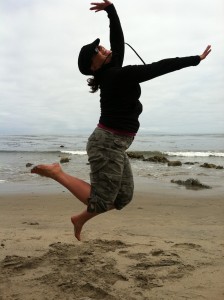“People should worry about each other. Because worry is just love in its worst form. But it’s still love.” – Simon Gray
As a follow up to my previous entry on worry, I found this quote, which I read in a magazine years ago. I remember reading it over and over, thinking about it for a long time. I couldn’t decide whether I agreed with him or not. I think worry is something misguided people do to show their love. But does that mean worry is love?
Someone told me recently, “Cruelty is the closest thing to love.” I was truly stunned. My first inclination was to disagree vehemently. But I had to consider it further. Maybe it’s true that some things are close to love, but not love exactly. I have an easier time believing that worry is close to love. But cruelty?
I think the difficulty in determining whether or not worry and cruelty are at all equivalent to love is related to the difficulty people have in defining love. (See The Power of Love for more on this topic, and for a discussion of David Hawkins’ scale of consciousness.)
If love is an energy (or an action that carries an energy), is the energy of worry (or cruelty, for that matter) on the same level as that of love? Hawkins would answer with a resounding no on both counts. Worry calibrates close to fear, and cruelty would be close to anger. Both are well below the love vibration.
So if love is an energy, then the energy of love is much different from the energy of worry. A Course in Miracles says the opposite of love is fear. On the other hand, if love is an action, does cruelty in some way demonstrate love? It takes energy to be cruel (just as it takes energy to worry). To be cruel means to be calculating. Maybe by that token the opposite of love is not fear, or even hatred, but rather indifference.
It’s only if love is a “feeling” that we can say that worry or cruelty might be a little bit close to love. If love is a feeling that we get caught up in, a feeling that we’re powerless to control, then we might behave in ways that are cruel.
For the sake of argument, let’s say that love is a feeling. Are we powerless in the face of our feelings? Simply under their control? If so, we’re little better than a two year old throwing a temper tantrum.
One of the benefits of meditation (and spiritual practice in general) is that it tends to move people from a state of reaction to a state of contemplation. In other words, it allows us to live in the gap. In the gap, we can make choices about who we want to be in the world. This means that it’s possible to choose words and actions that reflect our true values and priorities. It also means that we can choose how to direct our energy.
If we choose to direct our energy and intent toward being love in action then worry and cruelty will have no home in the same neighborhood as love.







